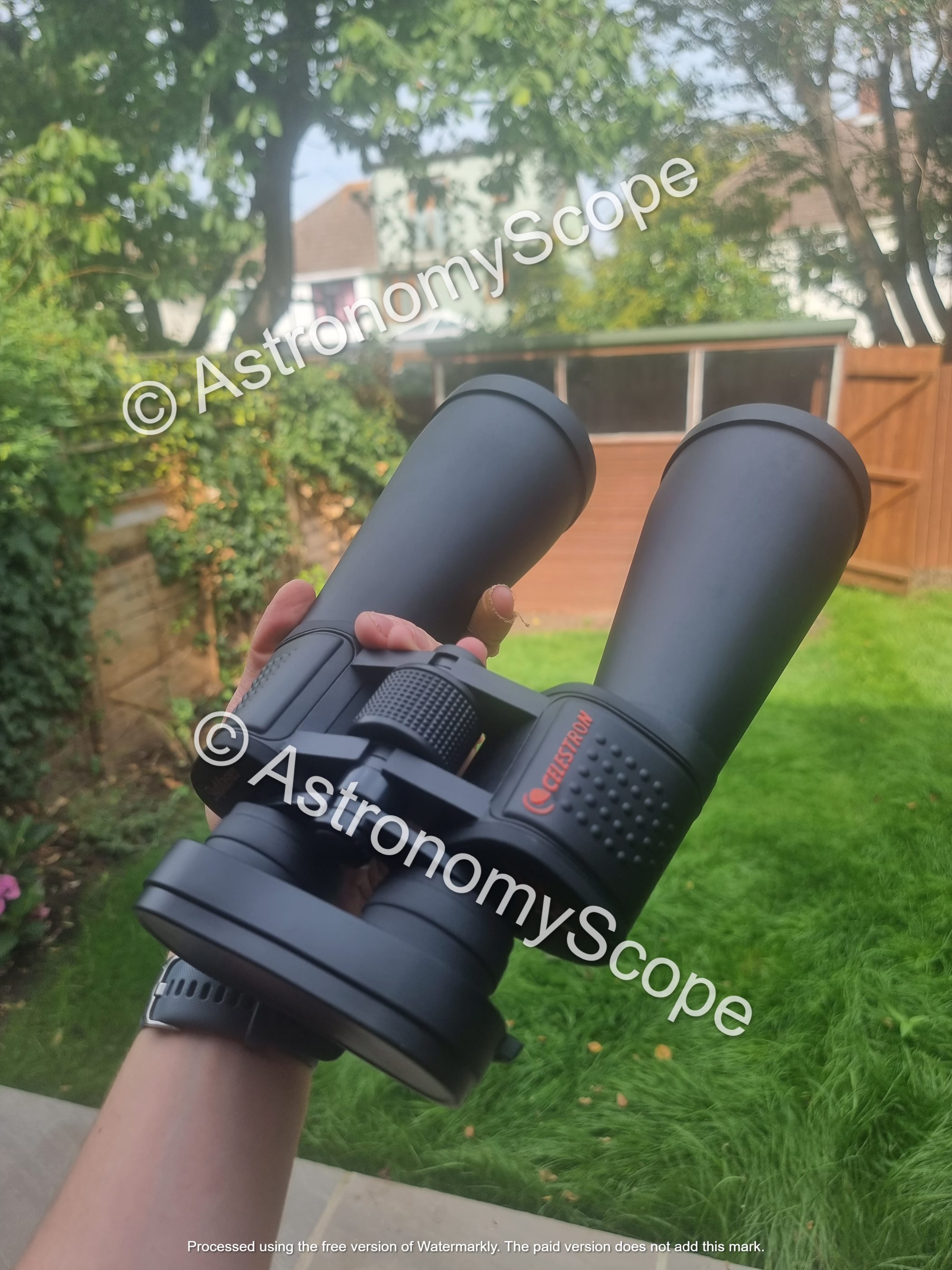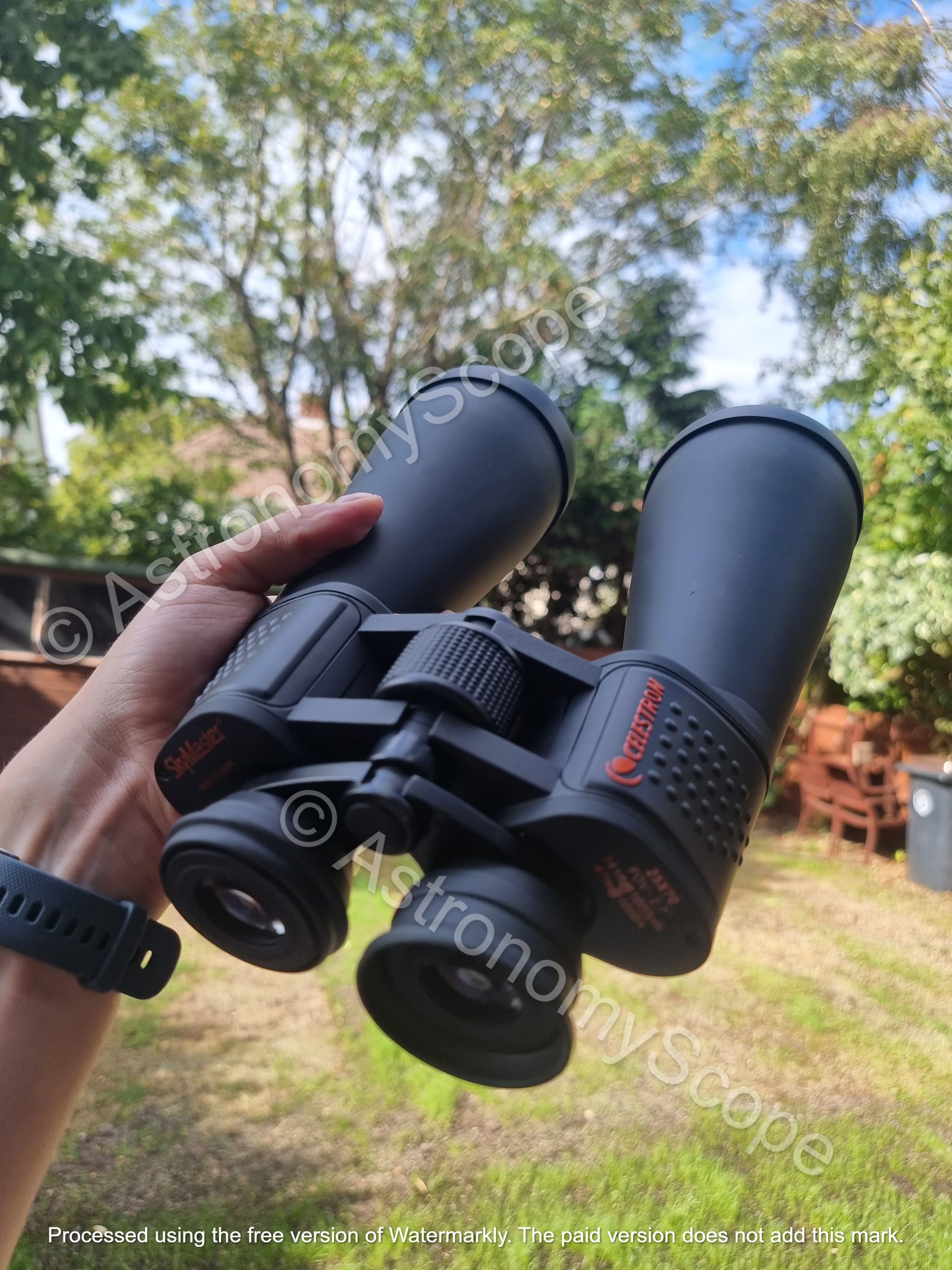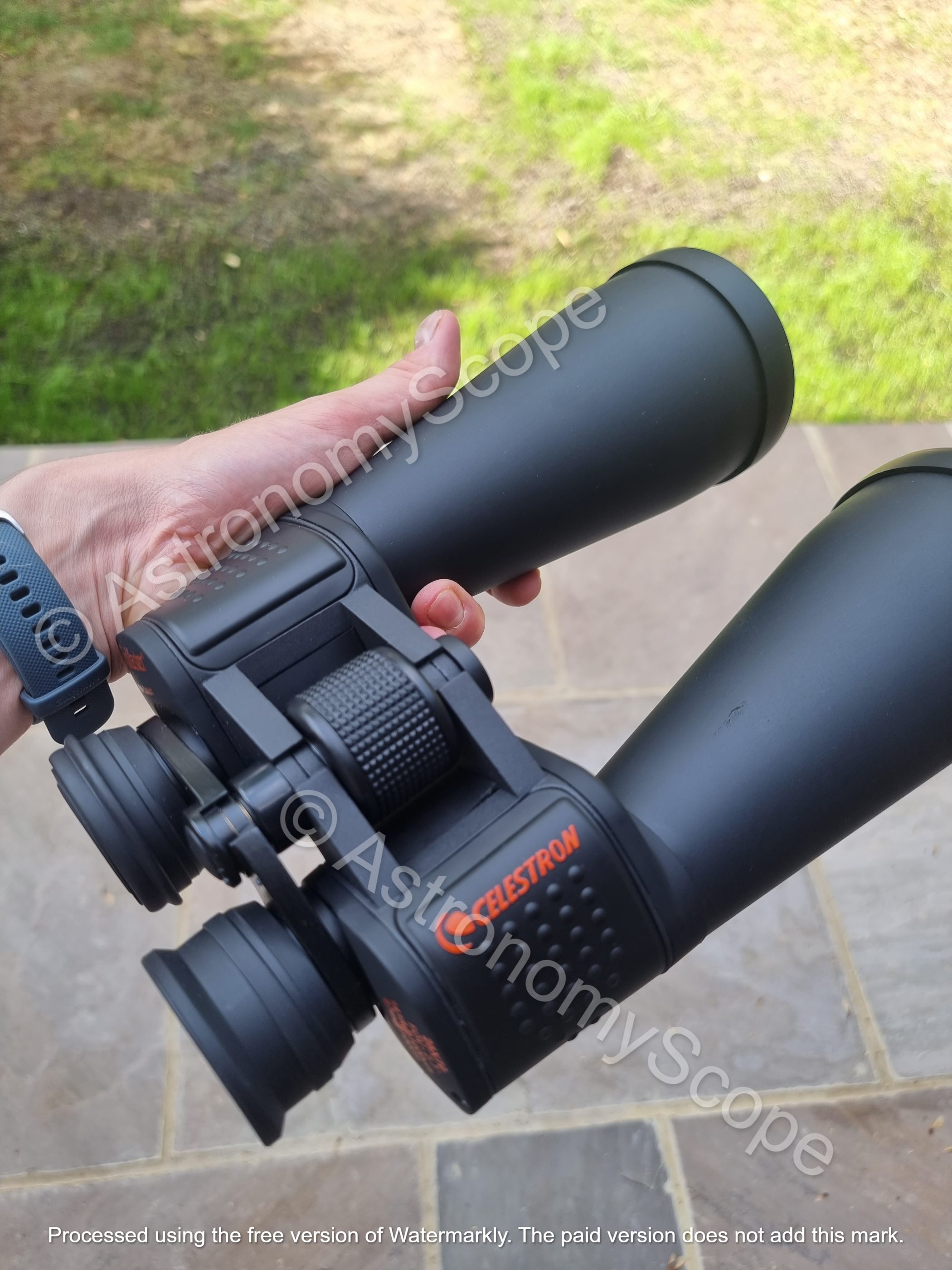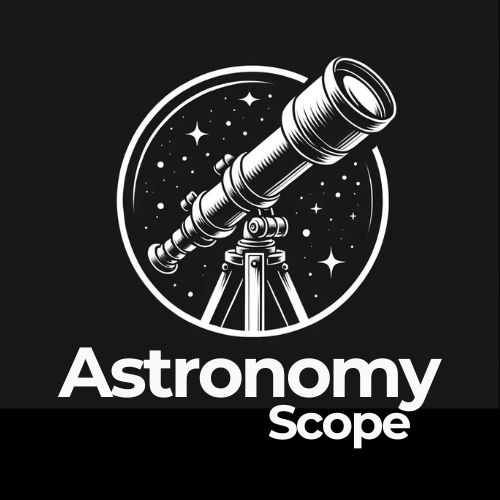Welcome to my Celestron SkyMaster 25×70 binoculars review.
If you’re considering diving into the fascinating hobby of stargazing, and more specifically, are considering this particular brand and model, then this guide is for you.
Having invested and used this particular pair for for several weeks, I’m going to be sharing my thoughts, opinions, experience and recommendations here with you today.

Quick Verdict
The Celestron SkyMaster 25×70 binoculars combine impeccable build quality with superb optical clarity, ideal for deep sky exploration at a great price.
Water-resistant and encased in a durable travel pouch, they’re perfect for both astronomy enthusiasts and terrestrial observers alike.
I highly recommend these binoculars for beginners seeking an impressive yet affordable entry into the world of stargazing.
Celestron SkyMaster 25×70 Review
I’ve been blown away by the Celestron SkyMaster 25×70 binoculars. Their stellar clarity took my sky gazing to another level. Their durable build and water-resistance are huge pluses, and the protective travel case is a bonus. I couldn’t have asked for a better tool for my stargazing adventures. Highly recommended!
My Experience With These Binoculars
After owning and utilizing these binoculars for several months, I’ve had ample opportunity to rigorously evaluate them on numerous aspects.
This involved scrutinizing the optical performance in terms of image sharpness and color fidelity, analyzing the magnification and lens size for ideal astronomical viewing, and inspecting the build for both sturdiness and user comfort.
I’ve tested them under a variety of lighting scenarios, with a focus on their performance in dim conditions for stargazing.
Furthermore, I’ve conducted comparisons with other binoculars in the same price bracket.
Here are the findings from my comprehensive testing of the Celestron SkyMaster 25×70:
Overall Score: 8.9
| Testing Feature/Aspect | Score (1-10) |
|---|---|
| Magnification and Objective Lens | 9.1 |
| Optical Quality | 8.9 |
| Field of View | 8 |
| Eye Relief | 7 |
| Focus Mechanism | 9.2 |
| Build Quality and Ergonomics | 9.1 |
| Light Gathering and Low Light Performance | 9.2 |
| Stability and Tripod Compatibility | 9 |
| Accessories | 8.5 |
| Price and Warranty | 8.8 |
| User Experience | 8.6 |
Score Notes
| Testing Feature/Aspect | Additional Notes |
|---|---|
| Magnification and Objective Lens | High magnification (25x) and large lens size (70mm) for deep sky observation |
| Optical Quality | Multi-coated lenses, BaK-4 prism glass, but no prism coating mentioned |
| Field of View | Narrow field of view (2.7°) typical for high magnification |
| Eye Relief | Moderate eye relief (13mm), could be challenging for some glasses wearers |
| Focus Mechanism | Detailed diopter adjustment range, but close focus is quite far |
| Build Quality and Ergonomics | Heavy (52 oz), but water-resistant and tripod adaptable |
| Light Gathering and Low Light Performance | Good twilight factor and relative brightness, suitable for night use |
| Stability and Tripod Compatibility | High magnification likely requires a tripod for stability |
| Accessories | Comes with essential accessories including a tripod adapter |
| Price and Warranty | Excellent price for the spec. |
| User Experience | High magnification may require experience to handle effectively |
My Testing Criteria
Below are the various tests I ran, and a brief description as to what each testing feature/aspect included:
- Magnification and Objective Lens – Evaluating the balance between magnification and lens size for optimal viewing
- Optical Quality – Testing sharpness, chromatic aberration, distortion, contrast, and color fidelity
- Field of View -Analyzing the width of the visible area and ease of tracking celestial objects
- Eye Relief – Assessing comfort for users with glasses, full field of view accessibility
- Focus Mechanism – Ease, precision, and range of focusing
- Build Quality and Ergonomics – Reviewing material quality, weight, balance, and comfort during extended use
- Light Gathering and Low Light Performance Performance – Testing in various lighting conditions, especially low light
- Stability and Tripod Compatibility – Assessing image stability when handheld and with a tripod
- Accessories – Reviewing quality and usefulness of included accessories
- Price and Warranty – Assessing overall value for money and warranty coverage
My Video Review
My Photos Of These Binoculars















Key Specifications
- Magnification: 25x
- Objective Lens Diameter: 70mm (2.75″)
- Focal Length of Objective Lens: 279.63mm (11″)
- Angular Field of View: 2.7°
- Linear Field of View (@1000 yds) / @1000 m): 141 ft (47 m)
- Exit Pupil: 2.8mm (.11″)
- Eye Relief: 13mm (.51″)
- Close Focus: 75 ft (23 m)
- Lens Coatings: Multi-Coated
- Prism Glass (Type): BaK-4
- Prism Coatings: N/A
- Weight: 52 oz (1474 g/1.4kg)
First Impressions: Unboxing and Packaging
Upon first glance, the travel case of the SkyMaster is impressive.
It’s made of durable nylon and has a sturdy handle, making transportation easy. The case is well-padded on the inside, ensuring the binoculars remain protected during travel.
For those interested, you can watch my unboxing video below to give you a complete overview of what you get and how they are packaged:
In the box you get:
- The SkyMaster 25×70 binoculars
- Protective lens covers
- A padded neck strap
- A cleaning cloth
- An instruction manual
The packaging is minimalist yet functional, with each component securely in place. Overall, the unboxing experience reflects the quality craftsmanship of the binoculars inside.
What I Like About The Celestron SkyMaster 25×70 Binoculars
Quality and Build
Pulling the binoculars out, they may seem large at first.
With an objective lens diameter of 70mm, these are full-sized astronomy binoculars.
However, at just under 3 pounds, personally I feel as if they achieve a good balance of optical performance and portability. (but more on the likelihood of a tripod later).
Equally, the body has a rubber armor coating that makes them comfortable to grip and also absorb impacts if dropped.
Nitrogen purging on the inside prevents internal fogging.
With a sleek finish and sturdy design, these binoculars are not only functional but also aesthetically pleasing.
Lastly, it’s important to note that these binoculars are also water-resistant, making them suitable for unpredictable weather conditions.
Specifications and Performance
The “25×70” denotes a 25 times magnification power, combined with a 70mm objective lens diameter.
This large aperture captures a lot of light, enabling observations of faint deep sky objects.
The focus knob can feel a tad sensitive initially, though it’s easy to get the hang of it with some practice.
The field of view is an ample 2.7 degrees, providing a broad sightline that makes finding objects easier.
Eye relief is also generous at 13mm to accommodate eyeglasses.
Optically, the fully multi-coated lenses and BaK-4 prisms deliver bright, high-contrast images, especially in low light conditions. Details really pop out under dark skies.
This is an incredible spec for deep sky exploration.
Observational Highlights
With the Celestron SkyMaster, I’ve been fortunate to observe:
- The Moon: Witnessing its craters and valleys in splendid detail.
- Star Clusters: Notably the NGC 1981 and M35 in Gemini.
- Celestial Bodies: The Galilean moons of Jupiter and even the International Space Station.
- Terrestrial Viewing: They’re primarily marketed as astronomy binoculars, but they’re equally adept at terrestrial viewing. Whether it’s observing airplanes, wildlife, or birds, the clarity remains top-notch.
Drawbacks and Limitations
A minor drawback is the eyepiece protector, which can occasionally become loose, and fall on the floor if your are not careful.
While not a significant issue, it’s something to be aware of.
Secondly, you may also need to invest in a tripod… Especially if you want to observe for extended periods while standing.
Personally, I find them comfortable to hold for several minutes.
Otherwise, you can always rest your arms on steady surfaces like fences or sturdy objects to take the weight.
Final Verdict; Should You Buy The Celestron SkyMaster 25×70 Binoculars?
Given their price point, the Celestron SkyMaster 25×70 offers exceptional value. I think they are a great pair of binoculars to buy.
They stand out as a viable alternative to the much more expensive, high-end binoculars.
Especially for beginners in astronomy or those looking for their first pair, these binoculars can be a game-changer.
Moreover, their multi-purpose nature makes them an ideal choice for both astronomical and terrestrial viewing.
If you’re venturing into both domains, this pair might just be the optimal combination.
Ultimately, the Celestron SkyMaster 25×70 binoculars are a commendable choice for both newcomers to astronomy and even more seasoned stargazers.
Their combination of build, performance, and versatility makes them hard to overlook.
And when it comes to buying them, the best place (which often has them at the best available price) is surprise, surprise…Amazon.
Click here to visit the Amazon Celestron SkyMaster 25×70 product page directly here.
Still not sure? You may be interested in my other astronomy binocular reviews:
- Celestron Cometron 7×50 Binoculars Review
- Celestron SkyMaster 12×60 Binoculars Review
- Celestron SkyMaster 15×70 Binoculars Review
- Celestron SkyMaster 20×80 Binoculars Review

Hey, my name is Jeremy. I’m a passionate and seasoned astronomer who loves nothing more than observing the night sky. I also love researching, learning, and writing all things Space and the Universe. I created Astronomy Scope to share my knowledge, experience, suggestions, and recommendations of what I have learned along the way while helping anyone to get into and maximize their enjoyment of the hobby.


